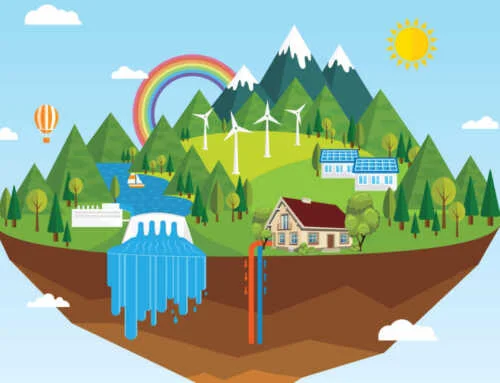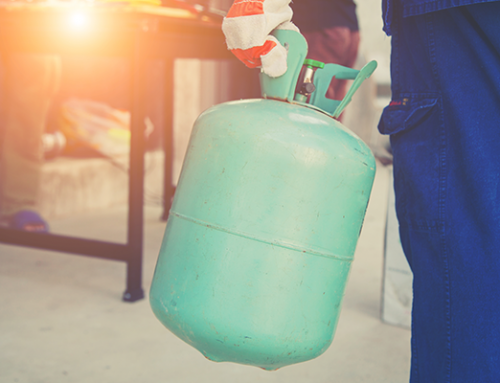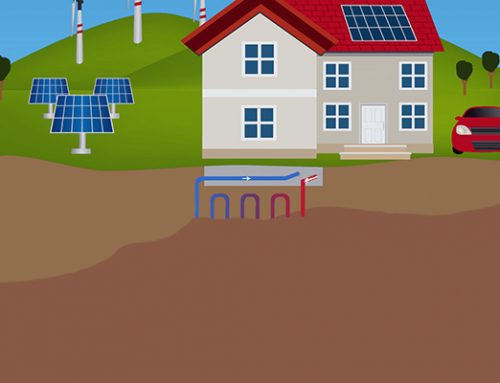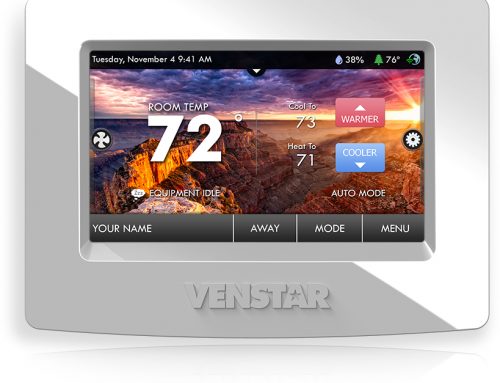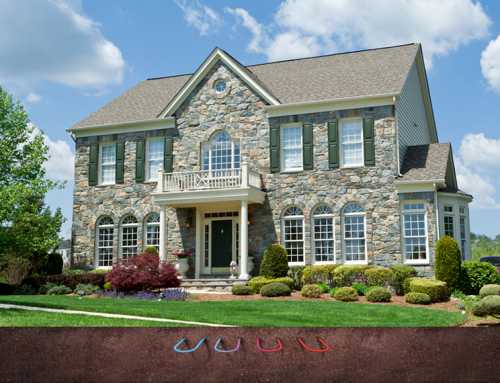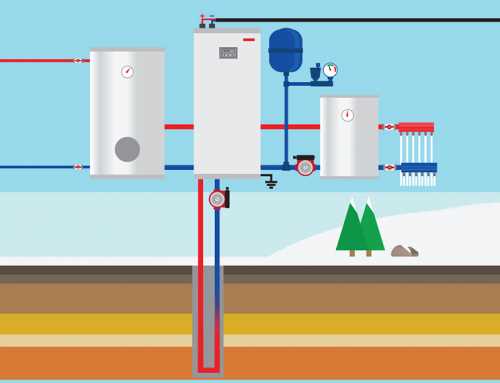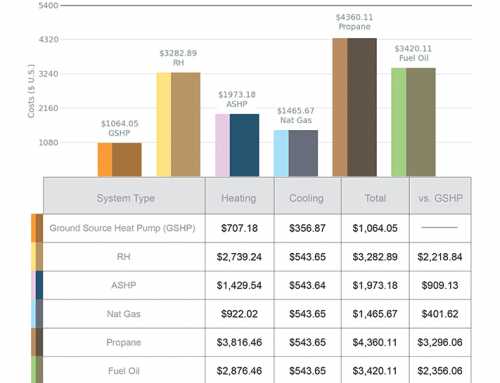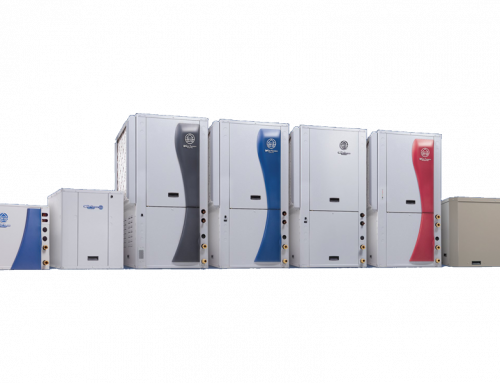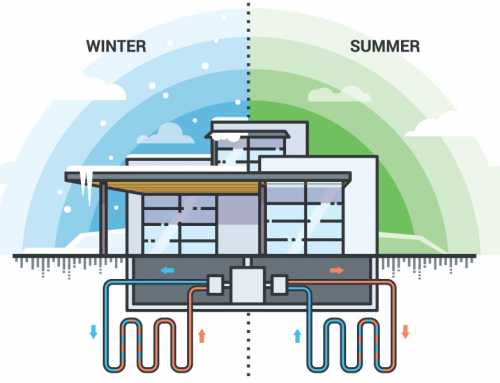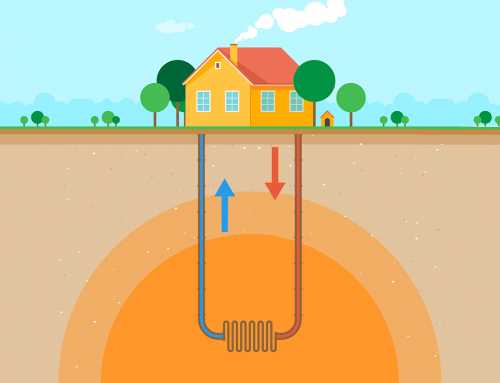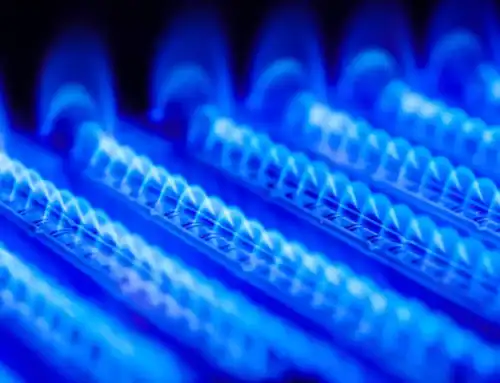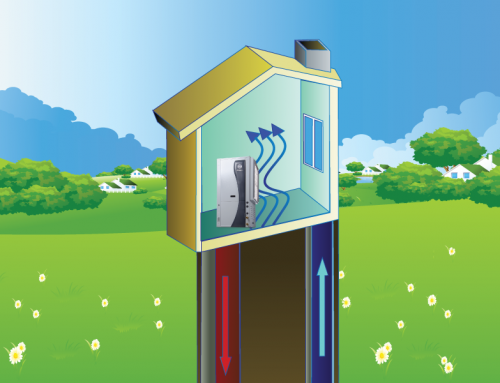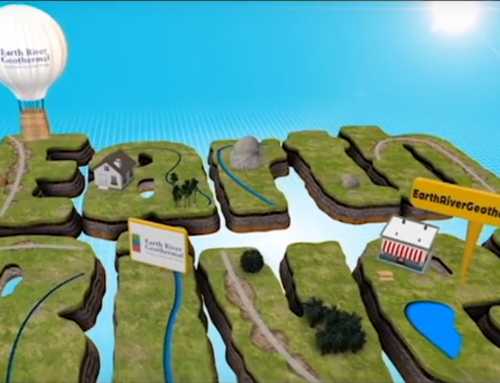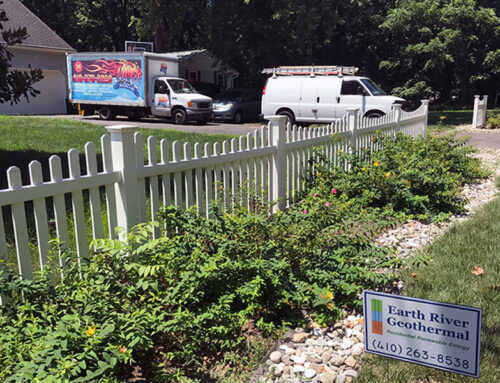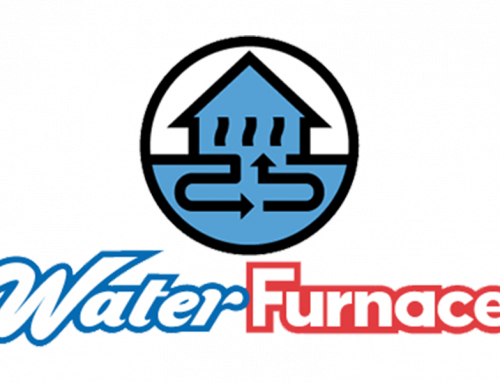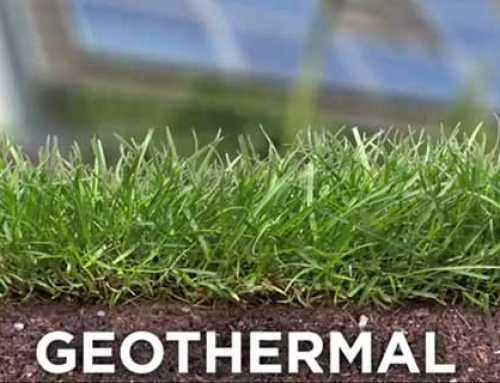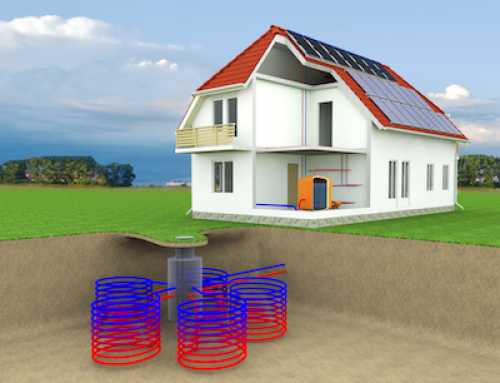How Much Does a Geothermal Heat Pump System Cost
Cost consideration is an integral part of installing a new heating or cooling system in your home. First, it is critical to reevaluate the energy load and decide on ways to reduce it to maximize the energy efficiency in the home. When you maximize the efficiency of the energy in your home, you can significantly reduce cost and utility bills while improving the overall comfort of the home.
Geothermal heat pumps, also known as geo-exchange or ground source, is an electrically powered cooling and heating system that transmits heat/cooling between the earth and the house by moving fluid through long loops of ground pipe. It’s important to mention that heat pumps don’t generate heat/cooling but rather move it from the earth to the house through a refrigerant cycle. Geothermal heat pumps can be integrated into existing systems like radiant floor heating or traditional forced air. It can also be installed in a newly built structure. The specific size of a geothermal heat pump, as well as the size of the ground loop required, is dependent on the cooling and heating requirements in a home.
Essentially, the capacity of geothermal systems is usually measured in tons. For an average home, a 3-ton installation will be ideal. However, it is crucial to mention that apart from the size of the home, there are other factors that determine the correct size of geothermal heat pumps for a home. All these factors also contribute to the geothermal heat pump cost that a homeowner can expect to spend during installation.
Overview of Geothermal Heating Cost
Currently, there is about a 12% annual growth in the geothermal cooling and heating market, and this is largely due to the increase in the demand for highly effective HVAC systems that leverage sustainable energy. As against the geothermal cost of about a decade ago, the pricing structure is becoming more competitive, thanks to the fact that there are more manufacturers offering ground source cooling and heating systems, and more experienced and efficient installers.
On average, a homeowner can expect to invest about $12,000 to $30,000 as geothermal heating and cooling cost. This cost would cover a complete geothermal installation. For large homes, the cost can range from $30,000 to $45,000 for high-end ground source heat pump systems. It is crucial to mention that the size of your home, the location, types of soil, available land, local climate usability and condition of existing ductwork, and your choice of heat pump will influence the total geothermal heating cost that you would be required to invest.
Let’s look at the geothermal installation cost structure in detail. As mentioned earlier, there are different factors that can influence the exact cost that a homeowner invests in their geothermal system.
| HVAC System | System Cost | Total Cost with Vertical Loop |
|---|---|---|
| Water to Air Heat Pump | $3,300 – $7,000 | $15,750 – $24,000 |
| Split Water to Air Heat Pump | $3,850 – $7,500 | $17,500 – $27,000 |
| Packaged Water to Water System | $4,000 – $8,000 | $19,500 – $30,000 |
Water to Air Systems:
This is also known as forced air systems. During the winter season, heat gathers with water that circulates in the pipes underground and gets converted to air that is being forced by a blower fan through the ductwork of your home. The reverse is the case in summer; heat is gathered from the air in the home and transmitted into the water in underground pipes. This gets cooled by the stable temperature underground before it is transferred into the home.
Water to Water Systems:
This refers to hydronic systems where heat is transmitted between water in the loop system and the water in the baseboard heat system or indoor radiant heat floor system.
Basically, geothermal heat pumps, also known as ground source heat pumps (GSHPs) accumulate heat from underground to heat up your home and diffuse heat in the ground when cooling your home. As could be seen in the geothermal heating and cooling cost structure above, a high percentage of the cost is the loop system installation. Basically, there are two types of loop systems; horizontal and vertical.
Horizontal loops systems come with a series of coiled plastic pipe that is laid in horizontal troughs deep in the ground. The troughs have to be deep enough to prevent freezing and make the best of the constant temperature below the surface. The horizontal loops systems come at lower installation costs. However, they need land space that will accommodate three to five troughs of 130 – 160 feet long, and 12 – 20 feet apart. At least, a plot of land will be required for this installation.
Vertical loop systems on the other hand are installed in situations where it is impossible to make horizontal troughs due to space. Here, a number of wells will be dug and the pipe loops will be installed directly in the wells. Usually, the wells are deep enough to reach underground water but this is not an issue. Other alternatives are loop systems that are submerged in ponds or other water bodies at the same cost.
You should be careful when using online ground source heat pump cost calculators because most of them are too low and significantly below the average cost. The majority of them use the US Department of Energy information quote that states ‘An average GHPS costs $2,500 USD per ton of capacity. This means if your home needs a 3-ton unit, the calculator would generate $7,500 USD. This figure is not accurate and not reflective of what it will cost you to install a geothermal heat pump in your home.
At Earth River, we give you the estimated price for heat pump equipment, the drilling costs, and installation costs. Usually, the drilling and installation cost for the geothermal system makes up about 65% of the total cost, which means the $7,500 estimate for the generic 3-ton unit is the minimum of the $16,500 for the total geothermal heating and cooling cost. It’s also important to mention that you can get some geothermal heating and cooling systems pumps for as low as $1,500 USD per ton of capacity. You should contact us at Earth River to get an accurate estimate of your geothermal cost.
Factors that will determine How Much Does a Geothermal Heat Pump System Cost:
As mentioned above, there are specific factors that influence the specific ground course heat pump cost that you have to invest in for installation. Let’s look at these factors in detail.
-
- Size and Capacity
- The size and capacity of your unit will determine the cost. The larger the size, the higher the cost will be. For residential units, you can have a range of about 2.0 tons/24000 BTU to 10.0 ton/120000 BTU. Generally, a home will need a unit between the ranges of 2.5 tons to 5.0 tons.
- Size and Capacity
-
- Types of Loops
- The available space will determine whether the horizontal or vertical system is the ideal choice for you. Normally, horizontal loops systems are more cost-effective than the vertical systems counterpart, but you need adequate space to have horizontal loops systems installed. Fortunately, Earth River Geothermal only installs vertical geothermal ground loop piping and vertical closed-loop ground source heating and cooling systems.
- GSHP Choice
- The options available are packaged water to the air system; water to the water system; and split water to the air system. Each of these options has varying cost implications and the one you choose will definitely affect how much you have to invest.
- Types of Loops
-
- The Efficiency of System
- System efficiency varies. Currently, the range of efficiency is from a low of around 15 EER to a high of above 30 EER for the cooling. The ratings of COP stand at around 3.0 cooling to above 5.0 for heating. This means the higher it is, the better the efficiency.
- Features
- The features you are looking for in your geothermal heating system will also influence the cost. Some of the popular features that homeowners lookout for including domestic hot water production, as well as air conditioning and heating, Wi-Fi control, and monitoring. All these impacts the overall geothermal cost.
- The Efficiency of System
- Performance
- There are different brands of components out there and the one used for your home will influence your geothermal installation cost. The majority of the brands produce single-stage and two-stage components for water to air systems. Your choice will definitely affect the cost.
Benefits of Installing Geothermal Heating and Cooling Systems
There are a number of advantages associated with geothermal heating systems that make them a better choice when compared to traditional heating and cooling systems. These are highlighted below.
-
- Cost Comparison
- Eco-Friendly
- GSHP systems are highly efficient and more efficient than traditional air-source heat pumps. The difference is about 40+ EER for geothermal and 17 EER for traditional air source heat pumps. It is also significantly more efficient compared to most ductless heat pumps, which stand at about 20 EER.
- Low Operating Costs
- Although the initial cost is high, it has low operating costs. This is because less energy is being consumed in the home, which automatically means low utility costs for the home.
- Incentives
- Currently, the federal geothermal heating and the cooling system tax credit is 30% of the total cost for the purchase of equipment and installation. The implication of this is that if the cost of installing the system is $20,000, it has drastically been reduced to $14,000. Other incentives include Maryland Residential Clean Energy Grant Program; and Anne Arundel County Geothermal Heat Pump Property Tax Credit.
- Renewable Energy
- Geothermal systems make the best of the consistent temperature underground, which is between 55°F and 57°F for cooling and heating. This makes fossil fuel-produced electricity a requirement when you want to run the fan and circulation pump. In fact, this can also be removed totally by using photovoltaic solar energy.
- Durability
- With standard maintenance, ground source heat pump equipment can be expected to last between twenty to twenty-five years. A geothermal vertical loop system can last between forty to over sixty years.
Undoubtedly, there are some disadvantages to geothermal cooling and heating. The primary disadvantage is the initial cost. By choosing Earth River Geothermal you won’t risk falling prey to inexperienced or unprofessional installers. We are Central Maryland’s most experienced geothermal heating and cooling contractor. When you engage us, you are assured of quality and excellent service.
Call us today to discuss your geothermal needs and to request a geothermal installation cost estimate.



